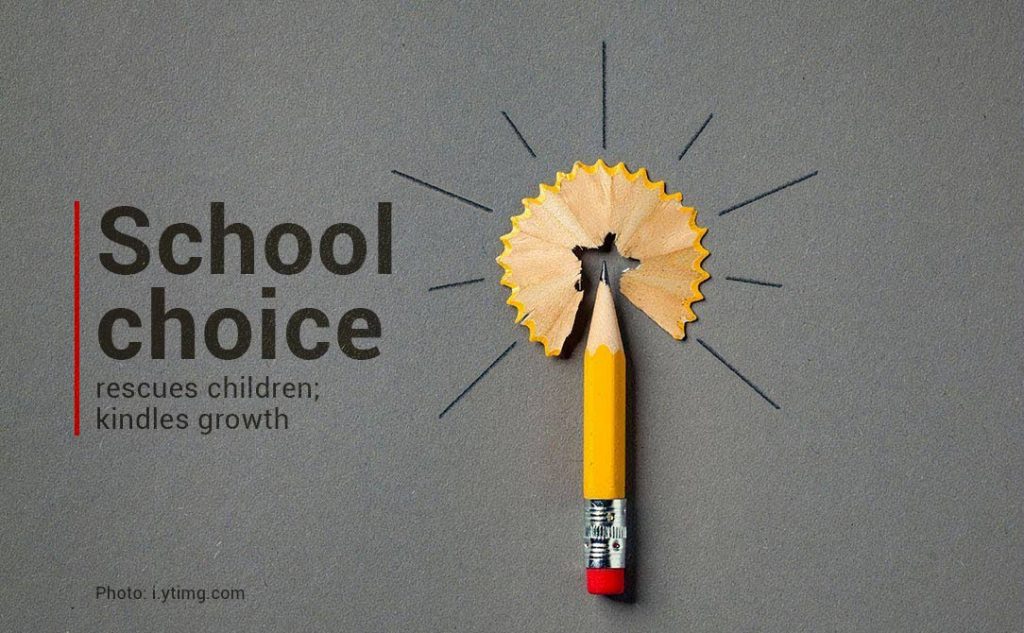
kmmpub@gmail.com
Our school system stifles teachers and abandons thousands of young people to lives of drudgery. But we can return choice to parents and unleash newly productive school-leavers.
Teachers work under strictures that prevent them from experimenting with creative ways of teaching. Administrators are equally trapped under a thicket of accrued policies.
Neither teachers nor administrators have access to data or analysis on what methods work best.
That would never fly in our still-leading downstream energy sector. There, new production methods are routinely tested and data collected. If methods work, they are rolled out. If not, they are binned. Why do we accept lower standards for our own children than we do for our fertiliser?
As a result, teachers feel increasingly isolated, overworked and dispirited. Little wonder that many simply give up. Indeed, the simple existence of a veritable cottage industry of private remedial tuition is the market’s clear indictment of the current system.
The answer? Return choice to parents and freedom to teachers.
We can give parents vouchers to send children to the schools of their choice, whether public or independent. Funds will be allocated to each school based on the number of vouchers, so they can expand to meet demand.
A number of public schools can then be converted to “charter” schools and given the freedom to determine their curriculum, hire staff, manage performance; even choose the length of a school day.
Schools can then compete to attract the most pupils, driven by a direct incentive to improve grades and student experiences. This need not cost any more than the current system: funds from poorly-performing schools will simply be reallocated to those for which there is greater demand. Teachers and administrative staff can move to expanding, progressive school networks.
Bill Gates, whose foundation invests billions in tackling education problems, has concluded: “This kind of approach – where groups of schools have the flexibility to propose the set of approaches they want – will lead to more impactful and durable systemic change.”
School choice is progressing rapidly in countries worldwide. In England, more than 60 per cent of schools have been converted into autonomous “academies” since 2010. Some 16 per cent of Swedish children and 2.5 million American children now attend charter schools, says University College London researcher Andrew Eyles. Test scores and, cruciall,y parent satisfaction have improved across the board. Under competition, the quality of charter schools continually rises.
This is not a rich-country phenomenon. Chile has made advances and the World Economic Forum has described Colombia’s “substantial gain in high school graduation rates and achievement as a result of the voucher programme.”
It is a truism in TT that many of the problems in schools today have begun at home. Many successful charter schools acknowledge upfront that their students may simply not be exposed to positive behavioural norms or strong work ethics at home, and stress building values as part of their approach. They are free to experiment with these methods that have the greatest impact on the poorest and most vulnerable children.
That is why the US Center for Research on Education Outcomes has shown that charter schools have had their biggest impact on poorer students and minorities in 27 American states that have introduced them.
Our system already has some precedent, in the form of its quasi-independent religious schools, whether the traditional church-run schools like my alma mater St Mary’s College, or the 48 Hindu schools built over a half-century by educational pioneers like the otherwise controversial Satnarayan Maharaj. They produce our best-performing students and largely populate the leadership of the country and in the diaspora. Just look at this week’s CAPE results.
There will be some adjustment, to be sure, but not one that necessarily threatens any jobs. Ministry officials can step in to help schools co-ordinate to help manage transitions and repurpose facilities for the use of better performing school networks.
Our economy desperately needs a medium-term boost. Mathematica Policy, a think tank, has found that charter schools boosted earnings for former students by some 12.7 per cent by age 25. Imagine if we had thousands more people entering the job market with the confidence of being able to read and write, who aren’t afraid of a spreadsheet and who ask questions and think through problems. This would translate almost immediately into higher productivity.
School choice can give us that. Most of all it will go some way to restoring the great injustice that has robbed a generation of confidence; and will rekindle a sense of promise for our children.
Kiran Mathur Mohammed is a social entrepreneur, economist and businessman. He is a former banker, and a graduate of the University of Edinburgh

Comments
""